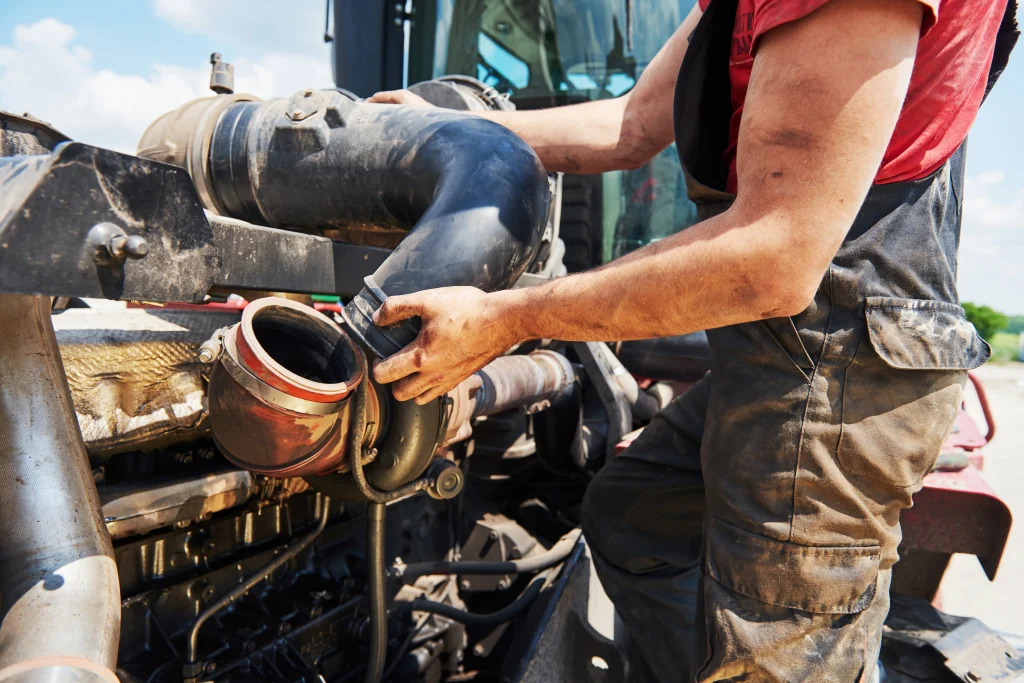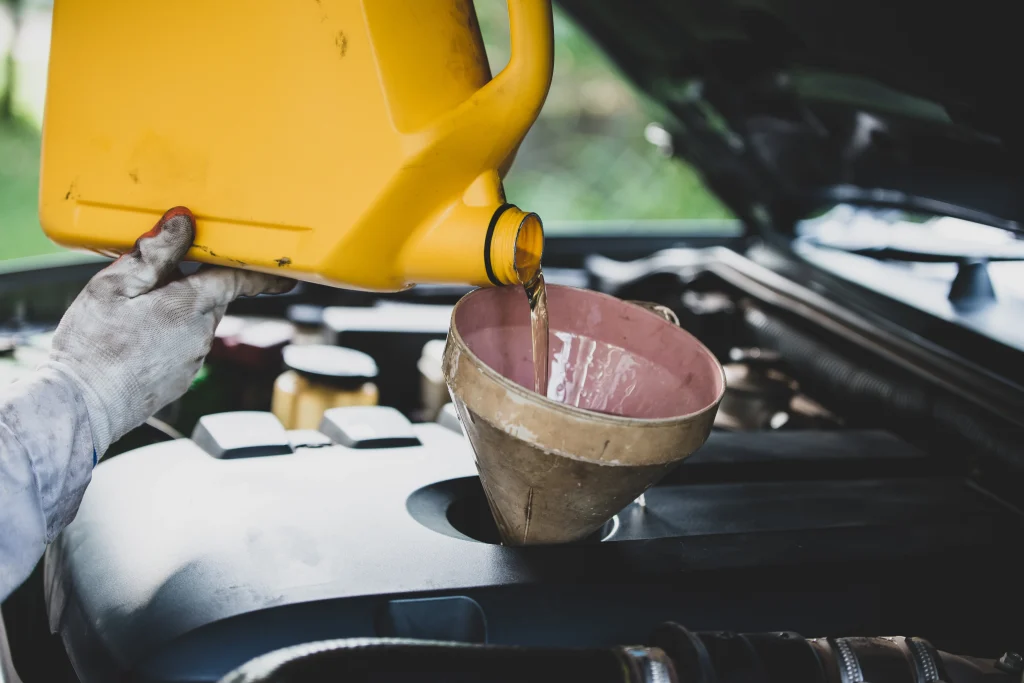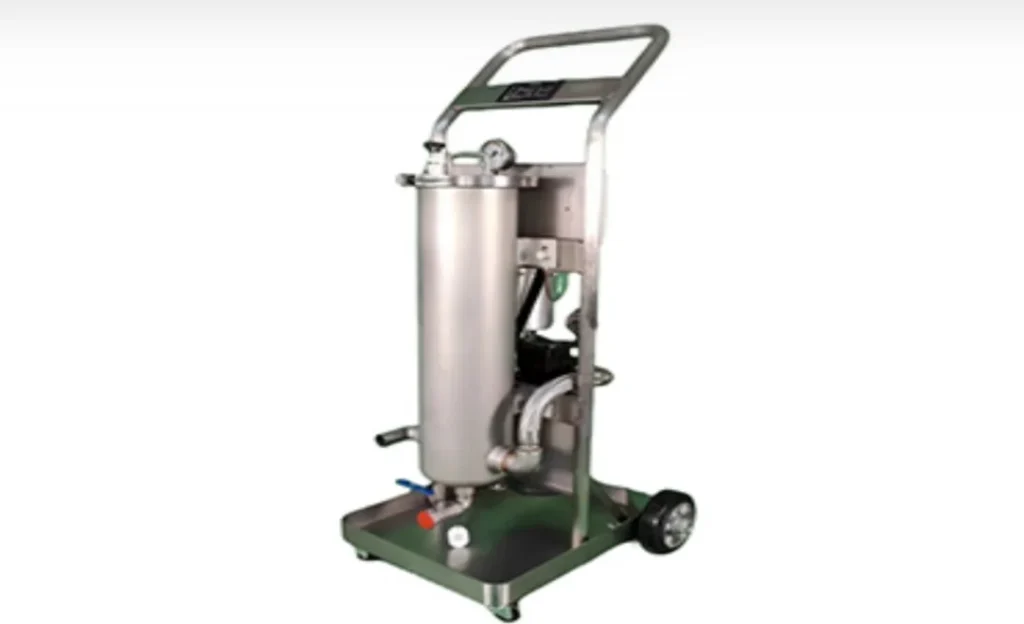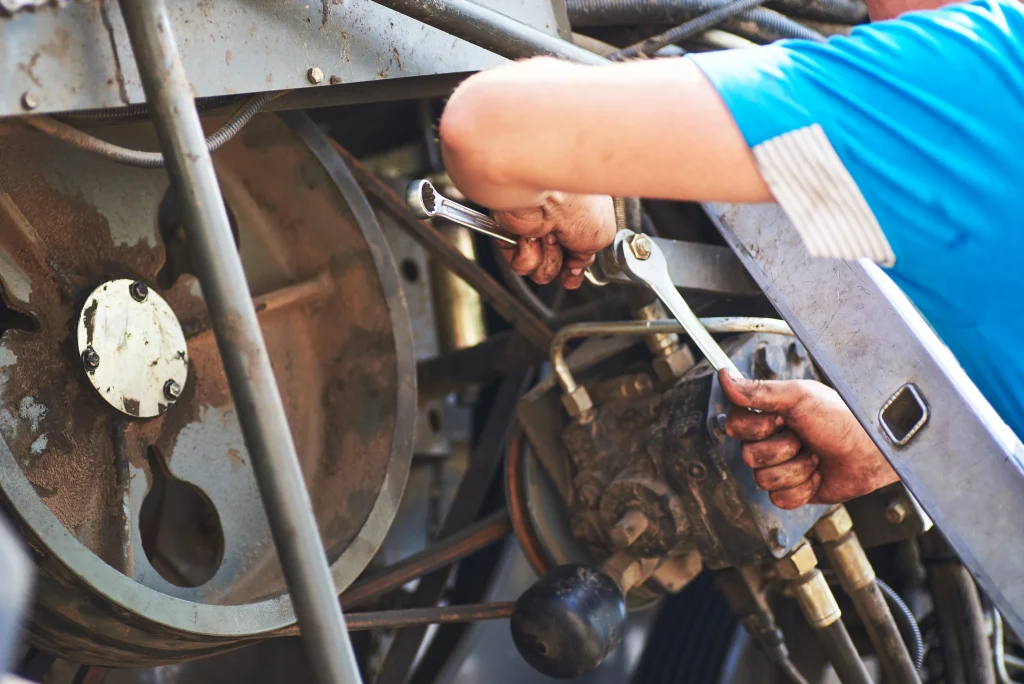Heavy machinery relies heavily on systems to function smoothly by using clean oil as a lubricant; nevertheless, there’s always the looming danger of contamination, which may result in decreased performance and expensive breakdowns of equipment. Typical impurities comprise dust, water, metal fragments, ts, and even minuscule particles gathered over time. These foreign substances can escalate friction, wear down components, and diminish the efficiency of the system.

Contamination comes from sources – dust can get in during maintenance or if items are stored incorrectly; worn components produce metal shavings within the system; and water contamination happens from condensation or leaks in cooling systems. The key is to understand these pathways of contamination to set up a purification plan.
Methods to Purify Hydraulic Oil
One simple method to eliminate impurities is by employing filtration techniques in the hydraulic system process.

The efficiency of filtration relies on the micron rating of the filter. The lower the rating is the better it can trap tiny particles effectively. Nonetheless, fine filters might need more frequent changes because they can easily get clogged. To maintain peak performance ‚ a rounded strategy involving multi-stage filtration. Allowing oil to pass through filters of different fineness levels progressively. It can notably prolong the lifespan of both the oil and hydraulic parts.
Vacuum Dehydration to Remove Water
Water pollution can have an impact on hydraulic systems as it can cause corrosion and reduce lubrication effectiveness while also producing acidic compounds that diminish the quality of oil used in these systems. Vacuum dehydration stands out as a highly efficient technique for eliminating water from hydraulic oil.
This method requires heating the oil to a temperature and then exposing it to a vacuum environment.In this process of applying heat and reducing pressure the water evaporates at a temperature than usual resulting in its separation from the oil. The vaporized water is then. Removed from the oil to leave behind a purified dry form of the oil.Vacuum dehydration proves effective in regions, with high humidity levels that constantly face challenges related to moisture penetration.
Centrifugal Separation for Fine Impurities
In sectors where tiny pollutants can lead to major harm centripetal separation presents a remedy with high efficiency levels in play too! The technique relies on force to sift through impurities by their density ratings specifically targeting the heavier particles like metal debris and sludge which are pushed outwards for containment while the refined oil stays, at the core of the process spinning rapidly within a centrifuge device.
Centrifugal separation works well in getting rid of water that consists of small water droplets mixed in the oil, and is hard to remove just through filtering alone. By getting rid of these impurities effectively, centrifugal systems keep hydraulic oil at its best quality, which leads to better efficiency and longer lifespan for the equipment.
Advanced Solutions: Our Oil Filter Truck for Refueling
In sectors where operational halts are unacceptable ordeals to deal with sophisticated filtration systems, Ourun offers a dependable and effective fix. This cutting-edge apparatus integrates filtration methods, like mechanical screening, vacuum drying out, and centrifugal isolation, into a single portable device. Tailored for top-notch functions, it guarantees that hydraulic oil abides by the stringent purity criteria.
Ourun Oil Filter Truck is highly sought after in the aviation sector well as in heavy machinery and industrial environments, due to its ability to prevent disastrous outcomes resulting from contaminated oil usage. Its advanced purification system eliminates particles and water while also removing dissolved gases from the oil to restore it to a pristine state. Thanks to its portability feature, which enables purification on location without interruptions and boosts efficiency. With its processing capabilities and automated functions in place, for reliability and cost-saving benefits.

Ourun Oil Filter Truck goes beyond just being technically advanced; it’s also user friendly with features that allow operators to monitor purification levels in time for peak performance without any uncertainties involved in the process.With its emphasis on efficiency and reliability, for industries seeking durable equipment solutions in the run this cutting edge filtration system proves to be a wise investment.
Benefits of Purifying Hydraulic Oil
Extended Equipment Lifespan
Quality hydraulic fluid plays a role in preventing excessive wear and tear on vital machinery parts such as pumps and valves by acting as a protective barrier against contaminants that can speed up their deterioration process over time. Regular purification of the oil helps to ensure the smooth functioning of equipment and cuts down on the need for expensive repairs, in the long run. This proactive maintenance approach ultimately results in cost savings by reducing maintenance and replacement expenses significantly over time.
Improved System Efficiency
Hydraulic systems work at pressures where even slight contamination can hinder performance significantly. Using oil guarantees steady fluid movement by minimizing energy loss caused by friction and turbulence. This results in functionality and improved responsiveness for enhanced overall efficiency. In precision-driven fields, like aerospace and manufacturing industries, the cleanliness of the oil could determine whether a system operates optimally or faces failure.
Reduced Downtime and Costs
Unexpected shutdown is a worry in any industrial setting as contaminated oil can trigger sudden breakdowns that result in expensive emergency fixes and delays in production processes. A proactive approach to purifying the oil helps prevent these problems by preserving its quality before any issues occur.Regular purification schedules along, with ongoing monitoring help to keep systems running smoothly with limited disruptions.

Best Practices for Maintaining Hydraulic Oil Purity
Ensuring the cleanliness of hydraulic oil demands a strategy in place to keep it pristine and functional over time. Regularly conducting oil tests plays a role in pinpointing contamination levels early on before they escalate into significant problems. Utilizing assessments, like particle counting and examining water content can serve as proactive measures to alert us to possible concerns ahead of time.
Keeping oil in sealed containers is important for its storage and handling to prevent dust and moisture exposure.. User clean equipment when moving oil to prevent mixing.Also maintain filters and purification systems, for optimal performance.
Industries that heavily rely on systems can benefit in the long run by investing in cutting-edge purification technology such as the Ourun Oil Filter Truck that offers superior purity and reliability through a blend of mechanical filtration, alon, with vacuum dehydration and centrifugal separation techniques.
FAQs:
Q1: How do you remove water from hydraulic oil?
A: The most effective method is vacuum dehydration, which heats the oil and places it under a vacuum to evaporate water at a lower temperature. The water vapor is then condensed and removed, leaving dry, purified oil. This method is especially useful in high-humidity environments where moisture contamination is common.
Q2: What is the best way to filter contaminants from hydraulic oil?
A: Mechanical filtration is the primary method, using filters with different micron ratings to trap solid particles like dust and metal shavings. For optimal results, a multi-stage filtration system is recommended, progressively removing smaller particles while preventing clogs. Advanced systems (like the Ourun Oil Filter Truck) combine mechanical filtration with other purification techniques for superior results.
Q3: Can dirty hydraulic oil damage machinery?
A: Yes, contaminated hydraulic oil increases friction, wear, and corrosion in components like pumps and valves. Particles, water, and sludge can degrade performance, leading to system failures, higher energy consumption, and costly repairs. Regular purification extends equipment lifespan and maintains efficiency.
Q4: What are the benefits of using a centrifugal separator for hydraulic oil?
A: Centrifugal separation uses high-speed rotation to remove fine impurities (like tiny metal particles and emulsified water) based on density. It’s highly effective for contaminants too small for standard filters and helps maintain oil cleanliness, improving system reliability and reducing wear.
Q5: How often should hydraulic oil be purified?
A: The frequency depends on operating conditions and contamination levels. Regular oil analysis (checking for particles, water, and acidity) helps determine purification needs. Industries with high demands (e.g., aviation, heavy machinery) may use continuous purification systems (like the Ourun Oil Filter Truck) to maintain peak oil quality and prevent downtime.
Conclusion
Filtering the hydraulic oil isn’t about upkeep—it’s a smart move to keep your equipment running smoothly and efficiently for the long haul! Whether you opt for filtering or use techniques like vacuum dehydration and centrifugal separation, each method is key to keeping your oil in top shape. In sectors where peak performance is an absolute feature, investing in advanced options like the Ourun Oil Filter Truck can provide a complete solution for keeping contaminants at bay.
By following industry standards and utilizing purification techniques effectively, companies can guarantee that their hydraulic systems operate seamlessly and with minimal disruption. This leads to more than purified oil; it enhances the reliability and cost efficiency of the entire operation.






